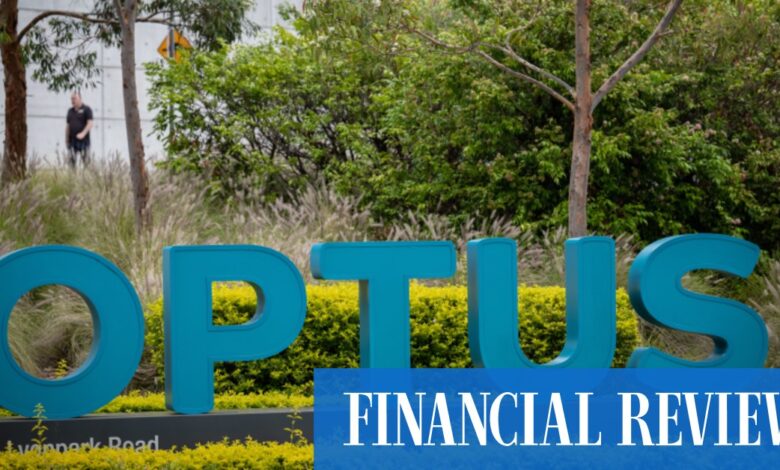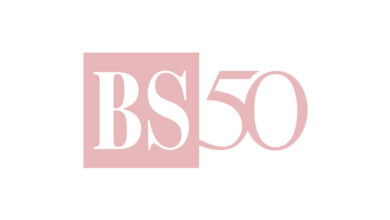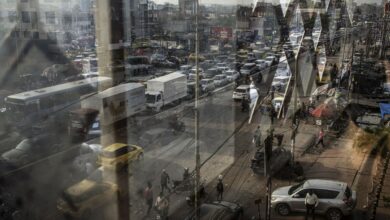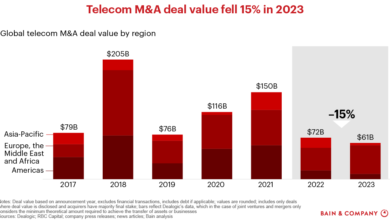TPG Telecom, Optus strike $1.6b regional phone network deal

The impact of the write-downs, which will reduce Singtel’s annual profit, has been cushioned by a $1.6 billion deal with TPG to share regional telecommunications networks. The deal will give greater geographical coverage to users of TPG’s mobile services, which include Vodafone and Lebara.
“It will allow us to expand our market and be competitive in regional Australia, which for us is super important,” TPG boss Inaki Berroeta told The Australian Financial Review.
The Optus and TPG deal comes after competition authorities last year rejected a previous $1.8 billion deal by Telstra and TPG to share networks and spectrum – the radio frequencies allocated to providers of mobile services – after regulators argued the transaction would entrench Telstra’s dominance of the telecommunications market.
Optus and TPG have been talking seriously since late 2023 over an alternative sharing plan, Mr Berroeta said.
TPG Telecom chief executive Inaki Berroeta: TPG expects the deal will break even from a cash perspective from fiscal 2026. Louie Douvis.
TPG will pay Optus service fees of $1.59 billion over 11 years to create a “multi-operator core network”. Optus will use the money to speed up its investment in 5G networks and complete them two years faster than expected. “Basically, it’s paid for by this transaction,” said Mr Venter.
TPG says it is cheaper to pay Optus fees than build and operate its own network in regional Australia, and that the expanded network will help it attract more mobile phone customers.
As of June 2023, Telstra had a 43 per cent share of the mobile phone market, followed by Optus with 29 per cent and TPG with 17 per cent, according to the Australian Competition and Consumer Commission’s annual communications market report.
The new regional network, which requires regulatory approval and is not expected to be available until 2025, essentially combines two existing networks operated separately by TPG and Optus.
Deal is different
TPG’s regional mobile sites will more than treble, which the telco group claims will allow its services to reach more than 98 per cent of the nation’s population.
Optus will pay TPG an estimated $420 million over the same period to access spectrum licensed to TPG, which will allow Optus to increase speeds for its customers.
Optus and TPG will each operate their own core network, and provide separate services. They will continue to compete for customers, and set prices independently.
Mr Berroeta said the companies expected “a good reception” from regulators after the Australian Competition Tribunal rejected the TPG-Telstra deal.
“We do think that the guidance that was provided by the tribunal was quite clear and in the spirit of that is how we have structured this agreement,” he said. “Ultimately, this will bring more competition to Australia.”
Mr Venter is also optimistic, arguing that the Optus deal is different. It allows TPG customers access to the Optus 5G network at the same time as Optus customers get it, and customers from both companies will get equal coverage.
The new network will also be open to other service providers and will not be exclusive to TPG and Optus.
Mr Venter declined to comment on Optus’ future following speculation of a potential stake sale to infrastructure group Brookfield. But he said the network sharing deal showed the importance of the Australian market to Singtel.
“It doesn’t strike me as a parent wanting to sell a sibling announcing a big transaction like this.”
TPG will recognise $230 million-$250 million of non-cash charges in fiscal 2024 related to decommissioning 75 of its own mobile sites in the area covered by the new network.
It also warned that fiscal 2025 earnings would be $55 million-$65 million lower than expected due to the fee payments to Optus, and hurt net profit by $10 million-$20 million. TPG expects the deal, which includes an option to extend the 11-year term by five years, will break even from a cash perspective from fiscal 2026.
TPG’s shares, which have slid 23 per cent over the past 12 months, rose 4 per cent on Monday to trade at $4.30.
Singtel warned investors that it expects to report a net loss in the second half of the financial year ending March 31, and a lower net profit over the full year. Its shares fell 2.5 per cent to trade at $S2.35 in Singapore.



